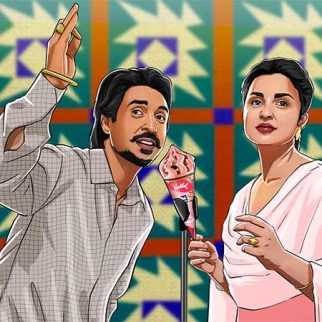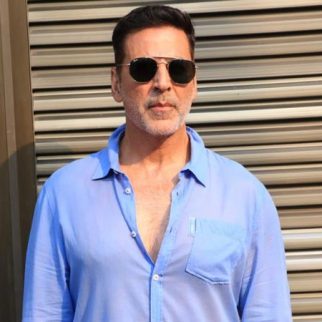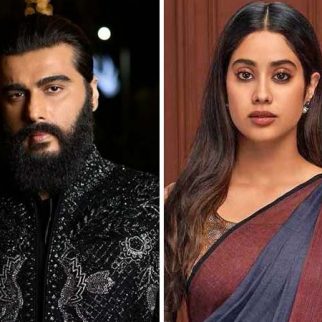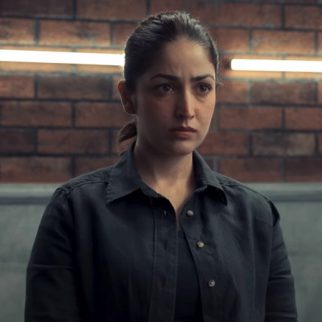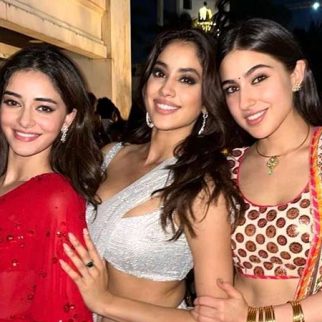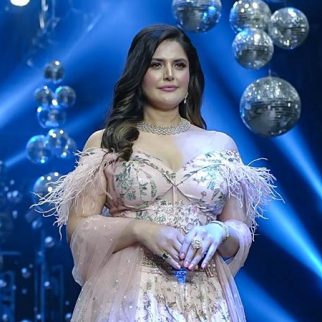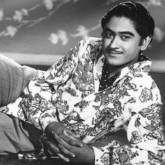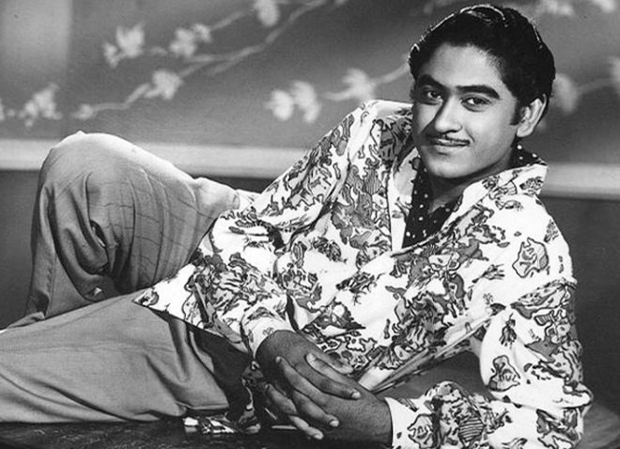
He was Hindi cinema’s first successful comic hero. A singing star who made people chuckle as much for his studied over-the-top performances as with his fun numbers like ‘Paanch Rupaiya Bara Aana’ (Chalti Ka Naam Gaadi) or ‘Jai Govindam Jai Gopalam’ (Ansoo Aur Muskan).
Kishore Kumar – The comic who moved us to tearsFrom the 1970s, as a big-time playback singer, Kishore Kumar also excelled in the romantic numbers of Rajesh Khanna, Rishi Kapoor and Amitabh Bachchan besides many others. But it is Kishore’s stunning mastery over the serious song that is ‘happily’ recognized!
Not that this gift from the all-rounder is restricted to his post-1969 output. Remember ‘Dukhi Man Mere’ from Funtoosh? Or ‘Mere Mehboob Qayamat Hogi’ from Mr X In Bombay? From day one, Kishore would willingly sing playback for Dev Anand, besides singing for himself on screen. But in almost all other cases, he would reject singing assignments for other artistes, grandiloquently declaring, “Main star hoon, singer nahin (I am not a singer but a star)!” And since all films of Kishore the star (but for his own productions!) were comic capers, Kishore the singer was never taken seriously (pun intended)!
Even as late as 1966 when the Kalyanji Anandji offered him that soulful masterpiece ‘Kasme Vaade Pyar Wafaa’ (Upkar) and Kishore’s innings as a leading man were almost over, this same reply was given to the duo, and it was a good two years later, when K-A offered another pathos-laden gem, ‘Dharti Ki Tarah Har Dukh Se Le’ (Suhaag Raat), that he told them loftily, “Haan, ab main singer hoon, main gaoonga (Now I am a singer, and I will sing)!”
Why did Kishore have to wait till his post-Aradhana peak to cast his spell as a singer par excellence in pathos-logy? Or was there a desire within him always to crush the comic branding that explained his composing such soulful songs in his own serious themed productions as ‘Koi Humdum Na Raha’( Jhumroo) and those lovely nuggets from Door Gagan Ki Chhaon Mein (‘Aa Chal Ke Tujhe’, ‘Jin Raaton Ki Bhor Nahin Hai’ And ‘Koi Lauta De Mere Beete Hue Din’)?
We will never know. But it is perhaps very significant to discover the curious fact that the three top-line composers who backed him most of his peak phase as a singer—Kalyanji Anandji, R.D.Burman and Laxmikant Pyarelal— all began their musical association with him minus the man’s trademark funny grammar. When he entered R.D. Burman’s music room for the first time in 1964, it was to etch out the haunting Bhoot Bungla litany, ‘Jaago Sonewalo Suno Meri Kahani’.
In that same year, Laxmikant-Pyarelal got Kishore to give body and soul to three evergreen numbers, ‘Mere Mehboob Qayamat Hogi’ (Mr X In Bombay), ‘Yeh Dard Bhara Afsana’ (Shreemaan Funtoosh) and ‘Ajnabee Tum Jaane Pehchaane Se Lagte Ho’ (Hum Sab Ustad Hain).
And it took L-P’s ‘Khizaan Ke Phool’ (Do Raaste) and that wistful Hemant Kumar composition , ‘Woh Shaam Bhi Kuch Ajeeb Thi’(Khamoshi) to consolidate the Rajesh Khanna-Kishore melancholic bond.
As the Kishore wave sidelined all the competition, Mukesh no longer retained the near-monopoly for sad songs. In O.P.Nayyar’s last burst of glory, Ek Baar Mooskura Do, it was Kishore who belted out the innovatively fast-paced sad song ‘Tu Auron Ki Kyoon Ho Gayi’ and that maudlin masterpiece, ‘Savere Ka Suraj Tumhare Liye Hai’ while Mukesh had two cheerful duets! In L-P’s Manchali again, Mukesh had a comic song, while Kishore got the poignant ‘Mile Kahin Do Ajnabi’.
Kishore had also outclassed himself as a composer-singer in Door Ka Rahi, by composing numbers the doleful ‘Panthi Hoon Main’. But by the time the film released with a slight delay in 1970, these lovelies proved to be just two drops in an ocean of explosive package of Kishore’s ‘emoti-songs’! The serious side of Kishore-da was now being continually highlighted by a cloudburst of such beauties.
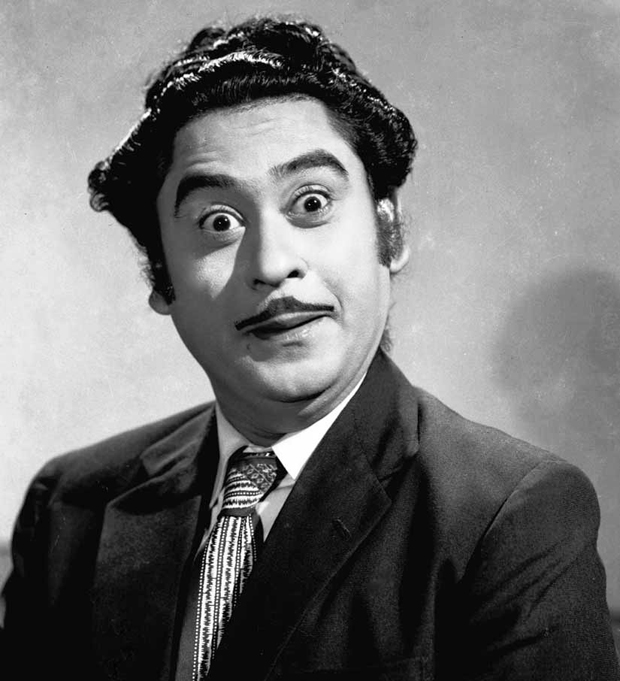
S.D.Burman himself switched Kishore’s vocals to supreme soulfulness as he unleashed ‘Dil Aaj Shaayar’ (Gambler), ‘Kaise Kahoon Main’ (Sharmeelee), ‘Duniya O Duniya’ (Naya Zamana), ‘Yeh Laal Rang’ (Premnagar), ‘Badi Sooni Hai’ and ‘Aaye Tum Yaad Mujhe’ (Mili).
R.D., to select only the cream, had the three aces from Amar Prem (‘Kuch To Log Kahenge’, ‘Yeh Kya Hua’ and ‘Chingari Koi Bhadke’) , ‘Kiska Rastaa Dekhe’ (Joshila), ‘Meri Bheegi Bheegi Si’ (Anamika), ‘Zindagi Ke Safar Mein’ (Aap Ki Kasam), ‘Tere Bina Zindagi Se’ (with Lata in Aandhi) and ‘Mere Naina’ (Mehbooba).
Kalyanji-Anandji, whose bond with Kishore was deeply personal despite their late professional start, obviously used this phase to adorn the Kishore oeuvre with supreme ‘sad-a-bahaar naghmein’ like ‘Zindagi Ka Safar’ (Safar), ‘Jo Tum Hasogi To Duniya Hasegi’ (Kathputhli), ‘Mera Jeevan Kora Kagaz’ (Kora Kagaz), ‘Apne Jeevan Ki Uljhan’ (Uljhan) and ‘O Saathi Re’ (Muqaddar Ka Sikander).
And of course we had Laxmikant Pyarelal, conveying passion, pain or philosophy with ‘Sui Jaa Tara’ (Mastana), ‘Yeh Jeevan Hai’ (Piya Ka Ghar), ‘Nahin Main Nahin Dekh Sakta’ (Majboor), ‘Mere Dil Ne Tadapke’ and ‘Na Hansna Mere Gham Pe’ (Anurodh), ‘Har Raat Ek Si Hoti Hai’ (Aadha Din Aadhi Raat), ‘Ek Rut Aaye’ (Gautam Govinda) and others.
Of course, other composers pitched in too: Shanker Jaikishan with ‘Geet Gaata Hoon Main’ (Lal Patthar), Ravindra Jain with ‘Ghunghroo Ki Tarah’ (Chor Machaye Shor), Rajesh Roshan with ‘Aa Ri Aaja Nindiya’ (Kunwara Baap) and ‘Tere Jaisa Yaar Kahaan’ (Yaarana), Bappi Lahiri with ‘Chalte Chalte’ (Chalte Chalte) and ‘Manzilein Apni Jagaah’ (Sharaabi), Khayyam with ‘Hazaar Raahein’ (Thodisi Bewafaai), Ravi with ‘Dekha Hai Zindagi Ko’ (Ek Mahal Ho Sapno Ka) and even Prem Dhawan with ‘Teri Duniya Se Hoke Majboor Chalaa’ (Pavitra Papi).
Kishore’s modus operandi for singing a sad song was simple: switch on and switch off. Incredibly, Kavita Krishnamurthi Subramaniam, who had watched him at work, recalled how he would be cracking jokes and every musician in the studio would be rolling in laughter, when the composer called him for a ‘take’. He would go in, record the sad song so well that it would bring tears to everyone’s eyes, and come back and start narrating his hilarious anecdotes again!
A possible spur for this amazing self-control may lie in early Kishore’s experience with Anil Biswas on the composer’s ‘Husn Bhi Hai Udaas Udaas’ (Fareb). After some rehearsals, the maestro insulted him by stating that he would never manage the complexities of the composition. Kishore had begged him for time to master the song, and the rest is history.
Kishore would never ever feel scared of a sad song again.
BOLLYWOOD NEWS - LIVE UPDATES
Catch us for latest Bollywood News, New Bollywood Movies update, Box office collection, New Movies Release , Bollywood News Hindi, Entertainment News, Bollywood Live News Today & Upcoming Movies 2024 and stay updated with latest hindi movies only on Bollywood Hungama.
